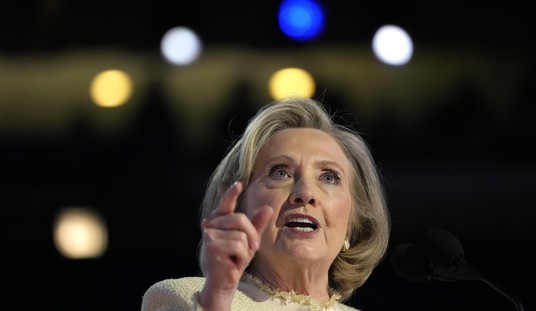King Pyrrhus, who gave his name to the phrase for a poisoned triumph was said by Plutarch to have described his battle against the Romans in 279 BC in these terms: “that one other such victory would utterly undo him.” The outward show of strength by the international community at the Paris climate summit has temporarily taken the spotlight away from the genuine political crisis facing Europe, the United States and Saudi Arabia. It’s a crisis of credibility in the leadership of the political elites.
The anti-migrant sentiment unleashed by the recent terror attacks in Paris was beaten back by the French political establishment at a terrific cost. Ian Bremmer at Time wrote: “Marine Le Pen Lost a Battle But May Win the War in France”. The National Front was prevented from making embarassing electoral gains only by a sacrifice play by the French left, the equivalent of Republicans voting for the Democrats to prevent a Trump victory.
France’s two-round voting system served as a democratic safety valve, giving the electorate a chance to rethink the outcome. The two-round system allowed the mainstream parties, the center-left Socialists and the center-right Republicans, to regroup after the first round and rally around consensus candidates.
But it came at a cost. While the Socialists of President Francois Hollande managed to hold onto five of the regions, they opted to pull their candidates from two to avoid splitting the vote in areas where the FN was expected to perform well. … The center-right Republicans—led by former President Nicolas Sarkozy—can only be unnerved that they had to rely so heavily on the Socialist self-sacrifice to pull it off.
Meanwhile the Obama administration was busy trying to convince an increasingly skeptical electorate it was winning in the war on extremism. Secretary of State John Kerry was reported by the Washington Post as heading for Rome to “avert mayhem in Libya, ‘the next emergency’ after Syria”. Iraq, Syria — the old emergencies — are left behind in the eddying wake of the news cycle so Kerry can focus on Libya “the next emergency” after the public has forgotten the previous.
Kerry joined 20 other diplomats from Europe, Africa and the Middle East to address mounting concern that Libya is about to become, as Italian Prime Minister Matteo Renzi recently said, “the next emergency” after Syria. …
“I think, as Samuel Johnson once said hundreds of years ago, the prospect of hanging concentrates minds, and the threat from Daesh certainly aided in the recognition by Libyans that they need to come together and form a single government,” said the official, speaking on the condition of anonymity under State Department rules for briefing reporters.
Misgivings about Hillary Clinton’s foreign policy achievement in North Africa continue to mount. “A New York Times reporter who recently returned from covering ISIS (also known as the Islamic State and ISIL) in Sirte, a coastal city in northern Libya, told radio host Hugh Hewitt Thursday that he was “shocked and alarmed” at how much ISIS has grown there.”
“I have to say I was personally shocked and alarmed at what I found on this last visit,” Times reporter David Kirkpatrick told Hewitt. …
ISIS is “sending in their own administrators, many of them from the Gulf, as well as their own military commanders, often Iraqis and former officers in Saddam Hussein’s army to lead their operations there, and recruiting foreign fighters from around the region,” Kirkpatrick said.
Kirkpatrick explained that Libya is a failed state full of cities that are governed by local militias. … “And into this landscape comes the Islamic State … and it’s been expanding its own empire so that it now has a full and exclusive control of 150 miles of Libyan coastline” … 400 miles away from Sicily, Italy.
Bill Roggio at the Long War Journal notes there is scant evidence that the administration’s air campaign is having a decisive effect on ISIS’ strength. A tremendous number of sorties have been expended for not very much in the way of achievement.
Rather than fighting the jihadist groups on the ground as a viable insurgent force or state, the US has primarily relied on airstrikes, and in many cases, unmanned drones, to target senior and mid-level leaders of the jihadist groups. …
There is little evidence that the Islamic State’s leadership has been decimated by the US air campaign and limited special operations raids, which began in Iraq in August 2014 and in Syria one month later. The coalition has launched a total of 8,783 strikes (5,765 in Iraq and 3,018 in Syria) as of Dec. 9, 2015, according to the US Department of Defense. Yet, according to the Pentagon’s own reporting only 13 senior and mid-level Islamic State leaders have been confirmed killed over the last 15 months.
And if Obama doesn’t beat down ISIS the simple reality is no one else will. The contribution of the “allies” to the campaign has been negligible. “In Syria, the heart of the Islamic State, 94 percent of the air raids have been made by American pilots.” The Daily Telegraph noted that the sum of total of a week’s worth of the Royal Air Force’s “round the clock blitz” was a “grand total of 14 bombs”. The whole campaign was proceeding at the speed of a man wading in a swimming pool. The Telegraph article continued:
even the Americans – who are doing about 78 per cent of strikes in Iraq and 95 per cent in Syria – are operating at an exceptionally low tempo compared to almost any allied air campaign of the past. As General Mark Welsh, chief of staff of the US Air Force, said last week: “This is never going to look like the first Gulf War air campaign. That is just not the intent of the strategy that has been decided on, whether anyone agrees with that or not.”
But all such misgivings were brushed aside by the administration. Reassurance was the purpose of what the Washington Post’s Greg Jaffe called president Obama’s “rare appearance at the Pentagon [which] … seemed designed specifically to counter criticism that he hasn’t devoted enough resources to destroying the group.”
“We are hitting ISIL harder than ever,” Obama said, using an acronym for the group. So far, he said, the United States has dropped nearly 9,000 bombs and last month struck more targets since the United States began attacking the Islamic State last year.
Obama has been under intense pressure from Democrats and Republicans to increase the pace and intensity of the campaign against the Islamic State following recent terrorist attacks in San Bernardino, Calif., and Paris.
Whether anyone believed him, even the New York Times, was another matter. But diplomacy, not winning, as ever appeared to be the main focus of the administration’s efforts. John Kerry is now in Moscow to talk to the Russians about the possibility of keeping on Bashar al-Assad. An administration which once declared Assad’s departure a necessity is going to try to convince all parties to bury the hatchet, a task made especially difficult because the only side everyone wants dead are the “Syrian rebels”. As Christoph Reuter writes in Spiegel Assad and ISIS need each other to survive to prevent any good guys from emerging as an alternative.
There have been dozens of cases since 2014 in which Assad’s troops and IS have apparently been coordinating attacks on rebel groups, with the air force bombing them from above and IS firing at them from the ground. In early June, the US State Department announced that the regime wasn’t just avoiding IS positions, but was actively reinforcing them.
Such cooperation isn’t surprising. The rebels — in all their variety, from nationalists to radical Islamists — represent the greatest danger to both Assad and IS. And if the two sides want to survive in the long term, the Syrian dictator and the jihadists are useful to each other. From Assad’s perspective, if the rebels were to be vanquished, the world would no longer see an alternative to the Syrian dictator. But the rebels are also primarily Sunni, as are two-thirds of the Syrian populace — meaning that, from the IS perspective, once the rebels were defeated, the populace would be faced either with submission and exile, or they would join IS.
It is little wonder that “the main Western-backed Arab rebel group in Syria appears on the verge of collapse because of low morale, desertions, and distrust of its leaders by the rank and file.” Neither they nor the “air campaign” appear to serve any useful purpose except to mollify Republican critics in Congress.
The Syrian conflict is not only a “war wrapped inside a war” but also a “war before the real war”, a preliminary bout before the final settling of accounts between Sunni and Shi’ite factions. The real war is not the imaginary backlash of Western Christians against Muslims. It consists largely of Muslim vs Muslim. Christof writes that Syria is “the first international Shiite jihad in history” with Assad increasingly playing the role of tumbleweed in a storm.
which has been compensating for the demographic inferiority of Assad’s troops since 2012. The alliance has prevented Assad’s defeat, but it hasn’t been enough for victory either. Furthermore, the orders are no longer coming exclusively from the Syrian officer corps. Iranian officers control their own troops in addition to the Afghan units, and they plan offensives that also involve Syrian soldiers. Hezbollah commanders coordinate small elite units under their control. Iraqis give orders to Iraqi and Pakistani militia groups. And the Russians don’t let anyone tell them what to do.
But if Syria is the “first international Shiite jihad”, Yemen bids fair to be the second. The New York Times reports that in this new hot spot next door to the Kingdom, Al-Qaeda is losing ground to ISIS in Yemen and unopposed by Saudi Arabia, which is preoccupied with quelling the Shiite Houthis.
An analyst in Yemen who closely follows Sunni extremist groups in the country said the scale of the attacks by the Islamic State showed that it was becoming just as dangerous as Al Qaeda. At the start of Yemen’s civil war, the Islamic State’s presence was “limited,” said the analyst, who spoke on the condition of anonymity because of the hazards of talking openly about the group.
As the war has spread across Yemen and the violence intensifies, the group’s “recruiting circle is expanding,” he added. …
Both the Islamic State and Al Qaeda have profited from a security vacuum while trying to rally Yemen’s Sunnis against the Shiite-led rebels, known as the Houthis, who are from the north, analysts say. Crucially, the groups have both faced little or no resistance from the Saudi-led coalition and its allies, which are focused on defeating the Houthis. The coalition receives backing from the United States and Britain.
The Saudis have been having a hard time of it and recently sustained a heavy blow when a Houthi missile destroyed an entire Saudi command center killing “23 Saudis, nine Emiratis and 12 Moroccan officers” plus more than 100 others. Nothing daunted Saudi Arabia announced an alliance to defeat an terrorism: though who exactly were the terrorists was unclear.
Saudi Arabia said Tuesday that 34 nations have agreed to form a new “Islamic military alliance” to fight terrorism with a joint operations center based in the kingdom’s capital, Riyadh.
The new counterterrorism coalition includes nations with large and established armies such as Pakistan, Turkey and Egypt as well as war-torn countries with embattled militaries such as Libya and Yemen. African nations that have suffered terrorist attacks such as Mali, Chad, Somalia and Nigeria are also members.
Saudi Arabia’s regional rival, Shiite Iran, is not part of the coalition. Saudi Arabia and Iran support opposite sides of in the wars raging in Syria and Yemen. Saudi Arabia is currently leading a military intervention in Yemen against Shiite Houthi rebels and is part of the U.S.-led coalition bombing the Sunni extremist Islamic State group in Iraq and Syria.
Whether the new alliance comprises the Justice League or the Legion of Doom the reader may decide for himself. But that necessarily raises the question of whose side the administration is on anyway. It’s a question they can always dodge. The Washington Post’s Michelle Boorstein writes that “the White House held three separate meetings Monday with faith leaders to discuss” a possible visit to a mosque by president Obama. “Ideally, they said, the visit would be with former president George W. Bush.”
Among the approximately 10 Muslim leaders who came to the White House on Monday to meet with several top officials was Farhana Khera, executive director of Muslim Advocates, a legal advocacy group. The meeting, she said, was called by the White House. According to a White House official, Senior Adviser Valerie Jarrett, Director of the Domestic Policy Council Cecilia Muñoz and Deputy National Security Adviser Ben Rhodes attended.
Khera said she pressed the White House to consider something Muslim Americans leaders have requested over the years: A visit to a mosque.
But will it be a Sunni mosque or a Shia one? Or should they should select one by lot? At least King Pyrrhus knew who he was losing to; Western voters don’t have that luxury. The political elites are doing their level best to change the subject whenever they are pressed by their voters to categorically declare their intentions. It is so much easier and more convenient for these leaders to continue the process of handing out all things to all men.
The crisis facing the West is at rock bottom a principal-agent problem. The political elites no longer represent anyone but themselves. So far, whoever loses, they win. They will avoid challenging the status quo unless they absolutely have to.
Follow Wretchard on Twitter
Recently purchased by readers:
Going Clear, Scientology and the Prison of Belief. “Winner of three 2015 Emmy Awards, including Outstanding Documentary or Nonfiction Special, this renowned documentary examines the controversial Church of Scientology and how the church attracts new followers. Researching one of the most secretive religions ever, Alex Gibney asks what members, including A-list stars Tom Cruise and John Travolta, are willing to do for their faith. Featuring forms of the church from its roots to modern rules of church agents.”
The Aviators, Eddie Rickenbacker, Jimmy Doolittle, Charles Lindbergh, and the Epic Age of Flight. “This is the fascinating story of three extraordinary heroes who defined aviation during the great age of flight. These cleverly interwoven tales of their heart-stopping adventures take us from the feats of World War I through the heroism of World War II and beyond, including daring military raids and survival-at-sea.”
Node.js the Right Way, Practical, Server-Side JavaScript That Scales. “JavaScript is the backbone of the modern web, powering nearly every web app’s user interface. Node.js is JavaScript for the server. This book shows you how to develop small, fast, low-profile, useful, networked applications. You’ll write asynchronous, non-blocking code using Node’s style and patterns. You’ll cluster and load balance your services with Node core features and third-party tools. You’ll work with many protocols, creating RESTful web services, TCP socket clients and servers, and more.”
Did you know that you can purchase some of these books and pamphlets by Richard Fernandez and share them with you friends? They will receive a link in their email and it will automatically give them access to a Kindle reader on their smartphone, computer or even as a web-readable document.
The War of the Words for $3.99, Understanding the crisis of the early 21st century in terms of information corruption in the financial, security and political spheres
Rebranding Christianity for $3.99, or why the truth shall make you free
The Three Conjectures at Amazon Kindle for $1.99, reflections on terrorism and the nuclear age
Storming the Castle at Amazon Kindle for $3.99, why government should get small
No Way In at Amazon Kindle $8.95, print $9.99. Fiction. A flight into peril, flashbacks to underground action.
Storm Over the South China Sea $0.99, how China is restarting history in the Pacific
Tip Jar or Subscribe or Unsubscribe to the Belmont Club










Join the conversation as a VIP Member